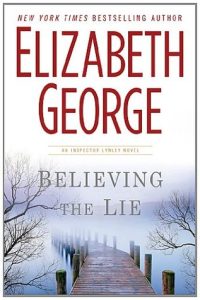Masterful Voice in Novels Part 2
I explained in the last post on masterful voice that voice is all about the character. If you have a novel told in omniscient POV, that voice telling the story is a character of sorts, sharing opinions, insights, and personality.
I make a distinction between writing style and voice, and though many people think they are the same thing, I feel it’s helpful to view them as entirely different things. What makes a voice masterful in a novel is when it conveys a character’s mind-set and characteristics.
Each character in your novel should have a unique voice that is influenced by background, upbringing, education, locale, and so many more factors. Voice isn’t just speech. It’s every word of every line in a scene, including narrative.
If your novel sounds like you throughout (the way you think, write, compose sentences and the words you choose), unless “you” are the engaging and entertaining narrator, the novel is going to fall flat. Having a child in the South sound exactly like a scholar at Harvard won’t come across well.
Hence, writers need to think carefully and deeply about characters to give them the appropriate voice.
I shared some passages from one of Elizabeth George’s novels in the last post. This week I’ll share some from a different novel: Believing the Lie. George is truly a master of character voice. I want you to notice how quickly she reveals so many key bits of information as she introduces characters.
This is all about setup. And as I’ve often said: you need to quickly set up your character’s core need, motivation, mind-set, problems, attitude, hurts, dreams, fears, and so on. You could write a dry, objective narrative summary of these things and bore your readers to death (and get bad reviews), or you could be masterful about bringing out all these necessary things for each of your key characters.
Let’s look at the first passage.
Tim Cresswell slouched in the back seat of the Volvo. He tried to close his ears to the sound of his little sister begging their mother once again to let them live with her. “Please please extra pretty please, Mummy” was the way she put it. She was, Tim knew, trying to charm their mother into thinking she was actually missing something without her children in constant attendance. Not that anything Gracie might say or the way she might say it would do any good. Niamh Cresswell had no intention of allowing them to live with her in Grange-over-Sands. She had fish to fry that had nothing do with any responsibility she might feel towards her offspring. Tim wanted to tell Gracie this, but what was the point? She was ten years old and too young to understand the workings of pride, loathing, and revenge.
“I hate Daddy’s house,” Gracie was adding in hopeful good measure. “There’re spiders everywhere. It’s dark and creaky and full of draughts and it’s got all these corners where there’re cobwebs and things. I want to live with you, Mummy. Timmy does ‘s well.” She squirmed round in her seat. “You want to live with Mummy ‘s well, don’t you, Timmy?”
Don’t call me Timmy, you stupid twit, was what Tim actually wanted to say to his sister, but he couldn’t ever get mad at Gracie when she looked at him with that expression of trusting love on her face. When he saw it, though, he wanted to tell her to harden up. The world was a shit hole, and he couldn’t understand why she hadn’t yet worked that out.
Tim saw that his mother was watching him in the rear view mirror, waiting to hear how he would answer his sister. He curled his lip and turned to the window, thinking that he could almost not blame his father for dropping the bomb that had destroyed their lives. His mother was a real piece of work, she was. . . . The bloody cow was acting true to character, even now, all pretence . . .
Let’s take a look at all the things this passage tells us about not just Tim but his relationships. George could have started by describing Tim: his age, looks, and where he lives. She could have then explained that his parents were divorced (or separated) and that Tim “was unhappy living with his mother.” She could also have said that Tim cared for his sister and resented his mother.
But that would be boring “telling.”
Yes, this is narrative “telling,” but while there is little action here, it’s Tim’s thoughts–the narrative, which is the POV character’s thought, in essence—that “shows” the situation here. We quickly get Tim’s mind-set, attitude, biggest concern, view of his family and life, his personality—all that—through seeing what he’s thinking as his mother is driving him and his sister somewhere.
We don’t get any physical descriptions (hair and eye color, height, build) of any of the characters. Is that important? I’ll let you answer that.
 What we do get are the nuances of the relationships. We see the complicated feelings Tim has toward his sister, mother, and even his father. We feel the anger and resentment he has toward his mother, even though he claims his father is the one that “had destroyed their lives.” If Tim has to choose between awful Mum and awful Dad, he’d choose the lesser of two evils: Dad. We sense Tim’s short fuse, ready to snap at his sister for calling him Timmy, then restraining himself with a touch of compassion and protectiveness. Here is a boy who is caught between the innocence of childhood and the hard slap of adulthood.
What we do get are the nuances of the relationships. We see the complicated feelings Tim has toward his sister, mother, and even his father. We feel the anger and resentment he has toward his mother, even though he claims his father is the one that “had destroyed their lives.” If Tim has to choose between awful Mum and awful Dad, he’d choose the lesser of two evils: Dad. We sense Tim’s short fuse, ready to snap at his sister for calling him Timmy, then restraining himself with a touch of compassion and protectiveness. Here is a boy who is caught between the innocence of childhood and the hard slap of adulthood.
We also learn about the house they’re living in through Gracie’s description of the conditions. And by the way his mother doesn’t react, doesn’t answer, doesn’t respond to her daughter’s pleading, it tells us volumes about her.
A lot of writers would just show the dialogue, some of Tim’s thoughts, and describe the characters, the car, the setting. And all that would be fine. But maybe not masterful. It’s the voice that brings it all alive and real. That engages and moves us. We are pulled into Tim’s life and care about him because we are there, in his head and heart, feeling his pain.
Let’s look at another passage.
Everything you do in quicksand is counterintuitive, Nicky had told her. When you hit it, your inclination is to freeze in place. It seems that struggling will make you sink faster. Any movement at all will presage more danger and an inconceivable end. But you must remember several things, darling. The first is that you have no idea how deep the sand really is. You’re only in a scour and while it might be deep enough to swallow a horse or a tractor or an entire tour coach, it’s more likely that you’re in one of the shallower scours, which will suck you in only to your knees or, at worst, your thighs, leaving you otherwise free until rescue comes. But you don’t want to discover that—especially if you’re going to go in up to your chest—because if you sink that far there’s no getting out because of the suction involved. At that point only more water can get you out, water from a fire hose blasting into the sand to free you or water from the incoming tide driving sand from the scour again . . . [this goes on for a few more sentences]
But no matter the words of her husband, who had lived his life in this strange part of the world, to Alatea the thought was madness. She was in the sand up to her thighs, so no quick movement out of the scour was possible. This meant lying on the top of the sand. And she could not bring herself to do it. She told herself to. She said aloud, “You must, you must,” but all she could think of as she settled more slowly downward was the insidious movement of the sand inching up her supine body, crawling into her ears, touching her cheeks, slithering like menace incarnate towards her nose.
Do we really need to hear all those words in Alatea’s head—words her husband, who isn’t a character in the novel, once said to her? George could have just described Alatea’s situation, said she was scared and worried she might sink. She could have said that in perhaps two sentences. Instead, we get a full page of her husband’s careful instructions on how to deal with the sand in the bay where they lived.
The information isn’t all that important to the scene, since Alatea can’t use it. It merely confirms to her what a predicament she is in. We learn from the passage that he’s gone, she wasn’t raised here, that she is scared but trying to stay calm. It’s masterfully shown through character voice.
Let’s look at a last passage for today:
He knew nothing about fishing, but that was hardly the point. Zed Benjamin understood that the point was not to catch fish or even hope to catch fish but rather to look like he was fishing. So he’d borrowed a rod from the tottering owner of his B & B, who gave him chapter and verse on her late husband and the wasted hours he’d spent with his fishing line in the waters of this lake, that stream, or whatever bay. She handed over a tackle basket, as well, along with a slicker that fit Zed’s arm but nothing else and a pair of Wellingtons that were altogether useless to him. She pressed a folding stool upon him and wished him luck. Her husband, she told him, had had virtually none. According to her, the man had caught fifteen fish in twenty-five years. He could see the record if he wanted to because she’d kept it, every time the bloody man left the house and returned empty-handed. Could be he’d been having an affair, she said, because when one really put one’s head to the matter—
Zed had thanked her hastily and had driven to Arnside, where he found, with thanks to God, that the tide was in. He’d established himself on the seawall path, just beneath Nicholas Fairclough’s house, and there he’d cast his line into the water. The line was baitless. The last thing he wanted was actually to catch a fish and have to do something with it. Like touch it.
Now that Scotland Yard knew that he was in the vicinity, he had to take care. Once they clocked him—whoever they were—his job was going to be even more difficult. He needed to know exactly who they were—assuming it was a they, because didn’t they work in teams like on the telly?
From there we learn more about Zed’s situation. But really—did we need to read all about the innkeeper’s monologue about her husband’s “fishing” expeditions? No. But, it’s highly entertaining in a number of ways. It’s amusing because we can truly picture this woman standing there talking his ear off. We get a sense that he’s being polite, but he’s quick to “hastily” interrupt her and make his exit, loaded down with all this stuff, which makes a humorous picture.
George could have started the scene with Zed already fishing, even recalling the words of the “tottering” innkeeper, and that would have worked as well. She could have shown him fishing and worrying about the Yard finding him, briefly explaining where he got the fishing gear. But then we would have missed all that wonderful narrative told in a masterful style that revealed character.
Yes, the narrative revealed more about the innkeeper than Zed. But it’s engaging, and we can picture Zed quite clearly. He has a need, but in addition to wanting to hurry, he needs to present a specific appearance, which he’s careful to don. He has an aversion to touching a fish, which I find a nice personality touch, implying he’s doing an activity that is actually distasteful, but he feels it’s necessary. He’s a large man, it seems, and not all that intellectual. An average kind of guy who watches the telly.
I hope you enjoyed these passages and learned some masterful technique. I’ve often said that characters make a story, and when you bring your characters to life with strong, unique voices that reveal motivation, need, and personality, you begin to write masterfully.
Your thoughts on the passages?











As always, thanks for sharing your insight using clear examples about voice. A character’s thoughts reveal the world and the character’s place in it. Novel writing allows for much more of this than in my YA adventure short stories.
I’ve shared the post online. All best to you!
Great post. Ironically, I started a book two days ago–over 200 Amazon reviews with a 4-star average–that I couldn’t continue past chapter four. Very much to your point about authors who seem to get away with surprisingly poor writing.
I don’t mind a sparer narrative than those from Elizabeth George or the amazing James Lee Burke–it wasn’t that. I’m a longtime fan of Michael Connelly and his Harry Bosch’s lean, riveting lens. However, the bad, 4-star book featured early chapters containing wildly disparate storylines, bland descriptions and head-hopping galore. Not a trace of deep POV. I never cared enough about any character to continue. This post, and the others in your “masterful” series of articles, drive home the importance of providing readers with someone to hang onto and a strong sense of the places they inhabit.
Wonderful insight. Right on track with what I’m working on. The readers connection to the character is paramount. Thank you.